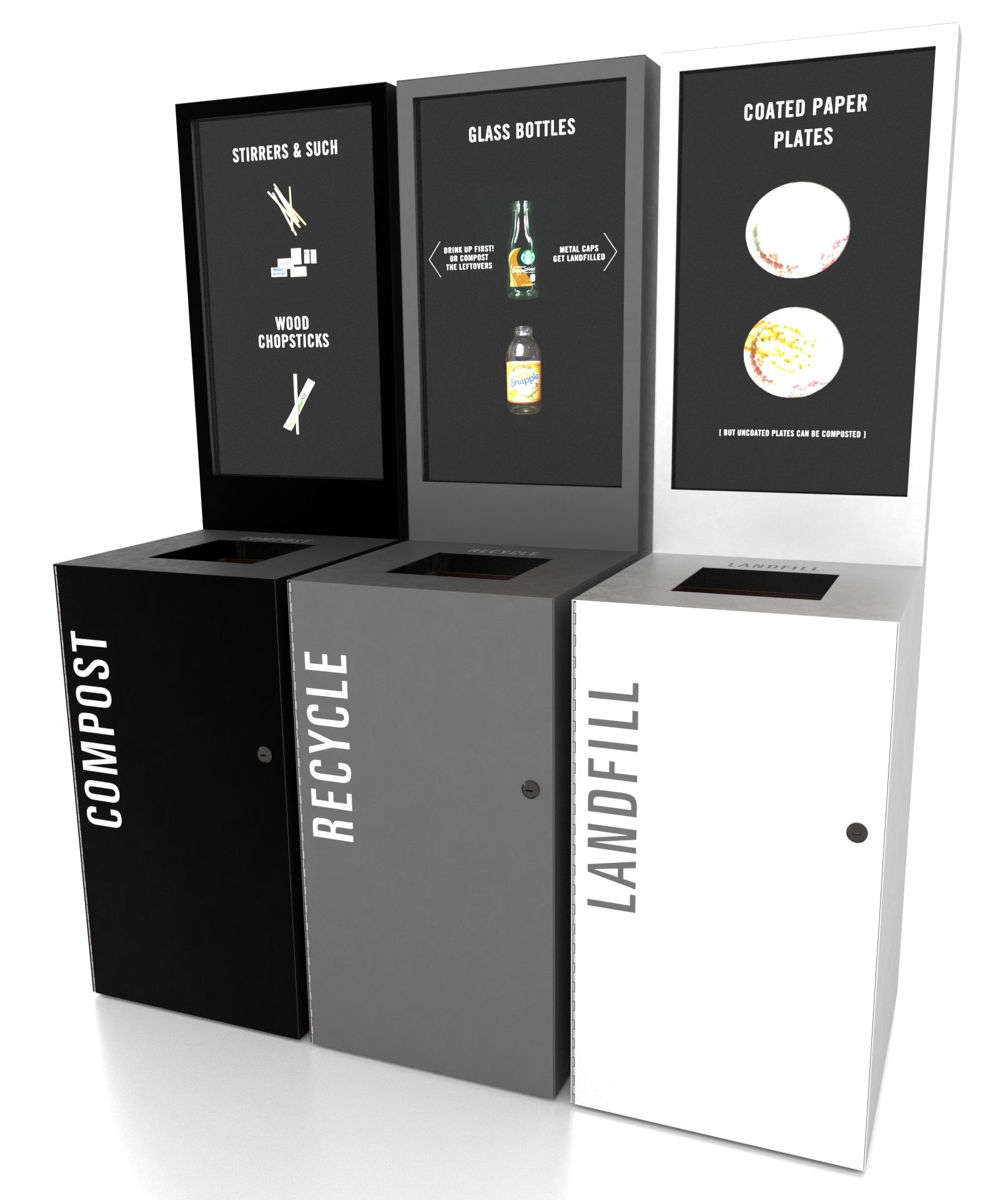by Brianna Crandall — January 1, 2018 — Compost, recycle or waste? It’s a dilemma facing millions daily, and one that EvoEco, a Seattle-based technology firm, has set out to solve with the launch of the EvoBin, an interactive smart waste system engineered to solve the challenges of consumer waste sorting.
The EvoBin helps consumers take the anxiety and guesswork out of getting rid of their waste, while empowering organizations to use data and messaging to efficiently manage their business. Said to be the first smart bin on the market with the technology to help divert waste from landfill, the EvoBin helps:
- Educate consumers on how to sort their waste;
- Reduce manual waste audits and trash sorts;
- Analyze current and historical data trends to determine problem locations;
- Track progress toward zero or low-waste diversion goals; and
- Optimize custodial services by providing real-time alerts for bins that are at capacity.
Waste is a $250 billion industry globally and $75 billion domestically, according to a World Bank study. Annually, the US generates 170 million tons of waste to landfill, with 80% that can be diverted to compost and recycling. However, consumers sort less than 35% of their waste into correct waste receptacles.
As a result, high-traffic venues are substantially overspending on waste collection, contamination fines, and additional labor to pre-sort before collection, notes EvoEco. As strict zero-waste legislation rapidly tightens throughout the US, the company’s solution allows commercial property managers and building operators to drive return on investment (ROI) and reach mandated waste goals.
How the EvoBin works
The EvoBin provides smart waste bins in high-traffic venues to help educate consumers about how to sort their waste. Equipped with microcomputers, visual displays, cloud functionality and scale sensors, the EvoBin offers high-traffic venues an end-to-end auto-sorting waste bin solution without the complex mechanical process, instead through object recognition and consumer engagement and education.

The EvoBin offers high-traffic venues an end-to-end auto-sorting waste bin solution through object recognition and consumer engagement and education.
Each waste sorting receptacle is equipped with an integrated scale that detects when waste is tossed in. The change in weight triggers a responsive, fully customizable message that slides, scrolls, or pops onto the screen. When users discard their waste, all weights in all bins are recorded and the screens provide immediate feedback.
When not in direct use, the digital screens show a cascading stream of waste, with images of items falling into the correct bins. This waste data can be monitored over time (and communicated on-screen) to encourage participation in communal recycling and composting.
Each EvoBin provides:
- Cloud customization. With the Content Management System, facilities managers (FMs) can remotely customize the EvoBins’ displays with ease, so that your message and user experience is perfectly tailored to fit any audience or venue.
- User engagement. Featuring an interactive system, the EvoBin actively engages consumers, encouraging better waste disposal habits and facilitating information retention.
- Waste diversion. The EvoBin utilizes crisp, well-designed visuals and an engaging user response system to help consumers accurately sort their waste — proven through research to divert waste from landfills, and create more environmentally conscious consumers.
- Real-time analytics. EvoEco’s technology captures data on how much waste is being deposited into each bin, providing insight into consumer disposal habits, the impact of waste diversion efforts, traffic differentials across different locations, and more.
William Zhou, founder and CEO of EvoEco, pointed out:
Every day, consumers are faced with the dilemma: which is the right bin to toss my cardboard, bottle, or wrapper. And each day, nearly 2/3 of the population gets that answer wrong, leading to contamination of our landfills and millions of dollars spent in waste management fees and fines for commercial property managers and building operators. Our technology makes it easier for consumers to know for sure which bin to toss their waste, improving our environment and saving operators millions of dollars along the way.
Nicole Dubee, property manager for Columbia Property Trust at 221 Main Street in San Francisco, explained:
We have tried a number of programs to encourage our tenants and visitors to sort their waste appropriately, since this not only supports our environment but can also provide significant savings on our waste disposal costs. However, our diversion rates were still below our target average. We are finding that, with its unique, interactive digital screen, the EvoBins engage people in a way that causes them to stop, consider and sort items correctly. Increasing our diversion rates should enable us to not only make up the cost of the bins in less than three months but also realize as much as a 40% savings year-over-year on our waste bill.
For more information on the EvoBin waste sorting technology, visit the EvoEco Web site.





